| |||||
| Decades: | |||||
|---|---|---|---|---|---|
| See also: | |||||
Events in the year 2011 in Moldova .
| |||||
| Decades: | |||||
|---|---|---|---|---|---|
| See also: | |||||
Events in the year 2011 in Moldova .
Music : Moldova in the Eurovision Song Contest 2011.
Soccer competitions: Moldovan National Division, Moldovan "A" Division, Moldovan Cup.
The history of Moldova spans prehistoric cultures, ancient and medieval empires, and periods of foreign rule and modern independence.
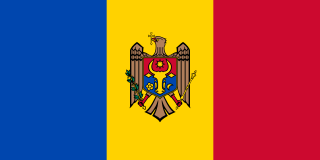
Moldova, officially the Republic of Moldova, is a landlocked country in Eastern Europe, on the northeastern corner of the Balkans. The country spans a total of 33,483 km2 (12,928 sq mi) and has a population of approximately 2.42 million as of January 2024. Moldova is bordered by Romania to the west and Ukraine to the north, east, and south. The unrecognised breakaway state of Transnistria lies across the Dniester river on the country's eastern border with Ukraine. Moldova is a unitary parliamentary representative democratic republic with its capital in Chișinău, the country's largest city and main cultural and commercial centre.

Transnistria, officially known as the Pridnestrovian Moldavian Republic and locally as Pridnestrovie, is a breakaway state internationally recognized as part of Moldova. It controls most of the narrow strip of land between the Dniester river and the Moldova–Ukraine border, as well as some land on the other side of the river's bank. Its capital and largest city is Tiraspol. Transnistria is officially designated by the Republic of Moldova as the Administrative-Territorial Units of the Left Bank of the Dniester or as Stînga Nistrului.

Vladimir Voronin is a Moldovan politician. He was the third President of Moldova from 2001 until 2009 and has been the leader of the Party of Communists of Moldova (PCRM) since 1994. He was Europe's first democratically elected communist party head of state after the dissolution of the Eastern Bloc.

The Party of Communists of the Republic of Moldova is a communist party in Moldova led by Vladimir Voronin. It is the only communist party to have held a majority government in the post-Soviet states. It has been variously described as communist, Moldovenist, populist, Russophile, and pro-Soviet.
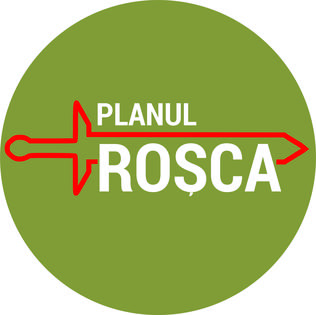
The Christian-Democratic People's Party is a Christian-democratic political party in Moldova. The party was led by Iurie Roșca from 1994 until 2011. Until 2005, the PPCD and the (Moldovan) National Liberal Party were the main political organizations in the country supporting the unification of Moldova and Romania. After the PPCD began supporting the anti-unification Communist President Vladimir Voronin, the party has lost its unionist credentials while other parties such as the Liberal Party have taken over the pro-Romanian ideological space. The party has had very poor results in all subsequent elections. Since April 2005, the PPCD has lost several deputies, mayors, councillors and members to the liberal-democratic parties. The PPCD was an informal coalition partner of the Party of Communists of the Republic of Moldova from 2005–2009.

Mircea Snegur was a Moldovan agronomist and politician who served as the first President of Moldova from 1990 to 1997. Prior to that, he served as the Chairman of the Presidium of the Supreme Soviet of the Moldavian SSR from 1989 to 1990 and chairman of the Supreme Soviet from 27 April to 3 September 1990.

Moldova elects a legislature at national level. The Parliament (Parlamentul) has 101 members, elected for a four-year term by proportional representation with a 6% electoral threshold. The President used to be elected for a four-year term by a constitutional majority of 60% members of the Parliament, but a Constitutional Court's ruling on 4 March 2016, reverted the election method of the President to a two-round system direct election.
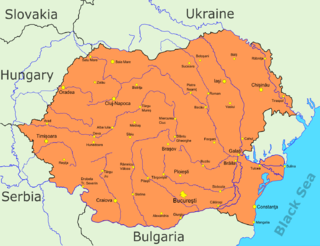
The unification of Moldova and Romania is a popular concept and hypothetical unification in the two countries that began during the Revolutions of 1989. The Romanian Revolution in 1989 and the independence of Moldova in 1991 further contributed to the development of a movement for the unification of the two Romanian-speaking countries. The question of reunification is recurrent in the public sphere of the two countries, often as a speculation, both as a goal and a danger. Though historically Romanian support for unification was high, a March 2022 survey following the Russian invasion of Ukraine indicated that only 11% of Romania's population supports an immediate union, while over 42% think it is not the right moment.

Liberal Party is a conservative-liberal political party in Moldova. The president of the party is the former Mayor of Chișinău, Dorin Chirtoacă.

Protests against the April 2009 Moldovan parliamentary election results began on 6 April 2009 in major cities of Moldova before the final official results were announced. The demonstrators claimed that the elections, which saw the governing Party of Communists of the Republic of Moldova (PCRM) win a majority of seats, were fraudulent, and alternatively demanded a recount, a new election, or resignation of the government. Similar demonstrations took place in other major Moldovan cities, including the country's second largest, Bălți, where over 7,000 people protested.

The Party of Socialists of the Republic of Moldova is a democratic socialist political party in Moldova. A populist party, it holds Eurosceptic and Russophilic views, both of which are reflected by its long-time former leader Igor Dodon. It is contrasted to like-minded centre-left European parties for its conservative views on social issues, reflecting the country's strong social conservatism and the influence of the Moldovan Orthodox Church.
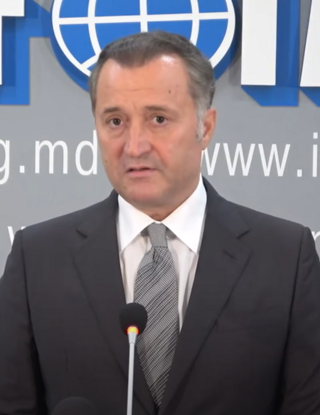
Vladimir Filat, commonly referred to as Vlad Filat, is a Moldovan businessman and politician, founder of Liberal Democratic Party of Moldova. He was Prime Minister of Moldova from 25 September 2009 to 25 April 2013. He also was appointed as the interim president of Moldova for a brief period of time in 2010. Following his conviction on charges of accepting bribes, Filat was released from jail in December 2019, 6 years earlier than his initial sentence.
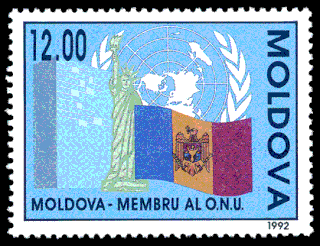
The following is timeline of the History of independent Moldova which started after the independence of Moldova.

Parliamentary elections were held in Moldova on 28 November 2010 after parliamentary vote failed to elect a President for the second time in late 2009.

Presidential elections were held in Moldova on 16 December 2011. The president was elected by the parliament in an indirect election. After the election on 16 December failed, a second attempt was made on 15 January 2012. However, that vote was annulled as being unconstitutional since it had not been held in a secret vote. On 16 March, parliament elected Nicolae Timofti as president by 62 votes out of 101, with the PCRM boycotting the election, putting an end to a political crisis that had lasted since April 2009.

Nicolae Timofti is a Moldovan jurist and politician who was President of Moldova from 23 March 2012 until 23 December 2016. He served as head of Moldova's Superior Magistrate Council and was elected President by parliament on 16 March 2012.

Maia Sandu is a Moldovan politician who has been the sixth and current president of Moldova since 24 December 2020. She is the founder and former leader of the Party of Action and Solidarity (PAS) and former Prime Minister of Moldova from 8 June 2019 until 14 November 2019, when the government collapsed after a vote of no-confidence. Sandu was Minister of Education from 2012 to 2015 and member of the Parliament of Moldova from 2014 to 2015, and again in 2019.

The Party of Action and Solidarity is a liberal political party in Moldova. The PAS was founded by Maia Sandu, the former Minister of Education and the incumbent president of Moldova. A pro-European party, it is an observer of the European People's Party (EPP) and the International Democracy Union (IDU).

Presidential elections were held in Moldova on 20 October 2024, with a runoff to be held on 3 November. Incumbent president Maia Sandu and former Prosecutor General Alexandr Stoianoglo advanced to the runoff, with Sandu winning the first round with about 42% and Stoianoglo winning about 26%.
This article needs additional citations for verification .(April 2022) |